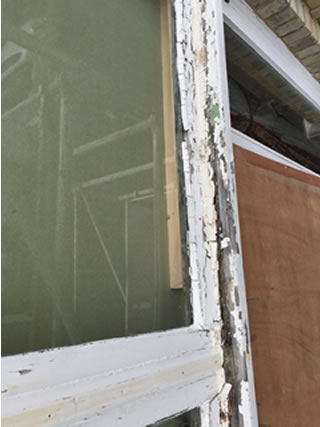Bringing Colour To The Loves Of People Living With Disability
Appeal to restore stained glass windows at The Royal Hospital for Neuro-disability

Hospital for Incurables Assembly Room circa 1900 showing the original stained glass
When the Royal Hospital for Neuro-disability (RHN) was established in 1854 as the ‘Hospital for Incurables’, the founder, Dr Andrew Reed, was determined to provide the best environment possible for people living with severe disability. For this reason The Assembly Room was added in the 1870s to provide a day room for patients and their families, and for over 150 years it has been at the heart of the hospital. HRH The Prince of Wales (Edward VII) laid the foundation stone in 1879 and it remains visible in the room today.
When The Assembly Room was built it had the most exquisite stained glass installed. The windows were destroyed in bombing raids in the Second World War. After the war limited funds meant that we had to replace the broken windows with plain glass. The windows and frames have become worn and they are now so badly in need of repair that they are boarded up - see below.

Working with the Heritage of London Trust and Chapel Studios, the foremost stained glass specialist in Europe, the RHN are planning to return stained glass to the Assembly Room, restoring this once grand Victorian Hall to its former beauty, so that it can be enjoyed by patients, residents and the wider community. To do this they need to raise £108,000.
To help with the restoration click here to donate.
For over 150 years, the Assembly Room has been at the heart of the hospital and its community. It is the location of the twice weekly Christian service presided over by the RHN’s chaplain, Geoff Coyne.

Thursday morning worship with chaplain, Geoff Coyne
The Assembly Room is still used daily as a space for meeting, socialising and being entertained. The vast range of activities and clubs for patients that take place in this room, include the Saturday morning boccia group with an additional sports group on Mondays; Making Music involving singing and dancing for people in wheelchairs; weekly film screenings, comedy club and regular live music. When not in use for an activity, the room is used by patients and family members as a place to relax and spend time together.
March 14, 2018
Related links
|